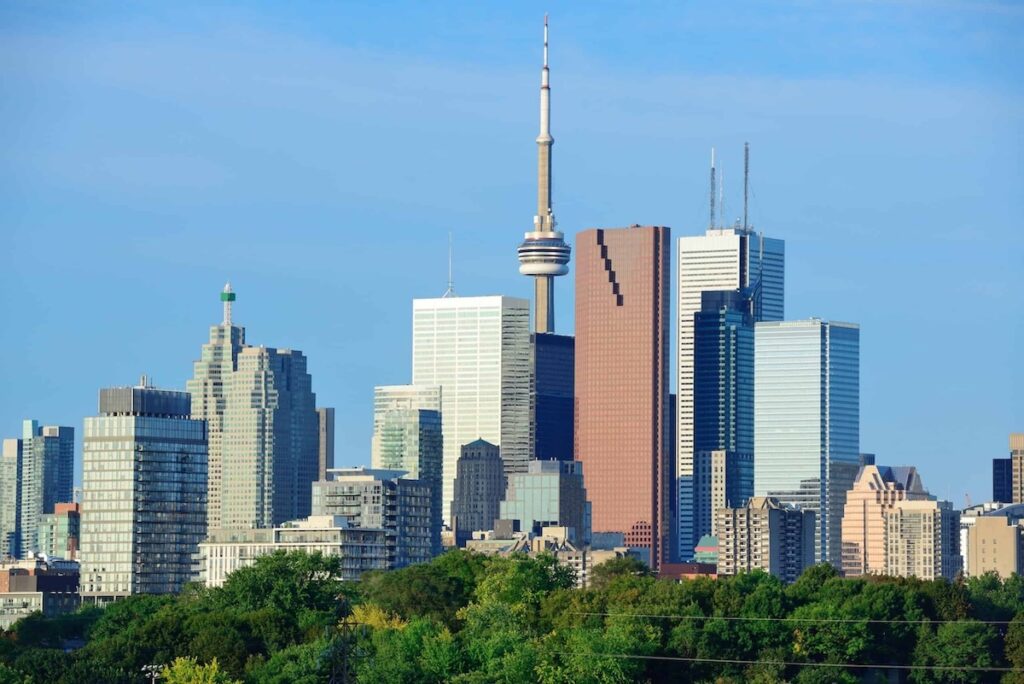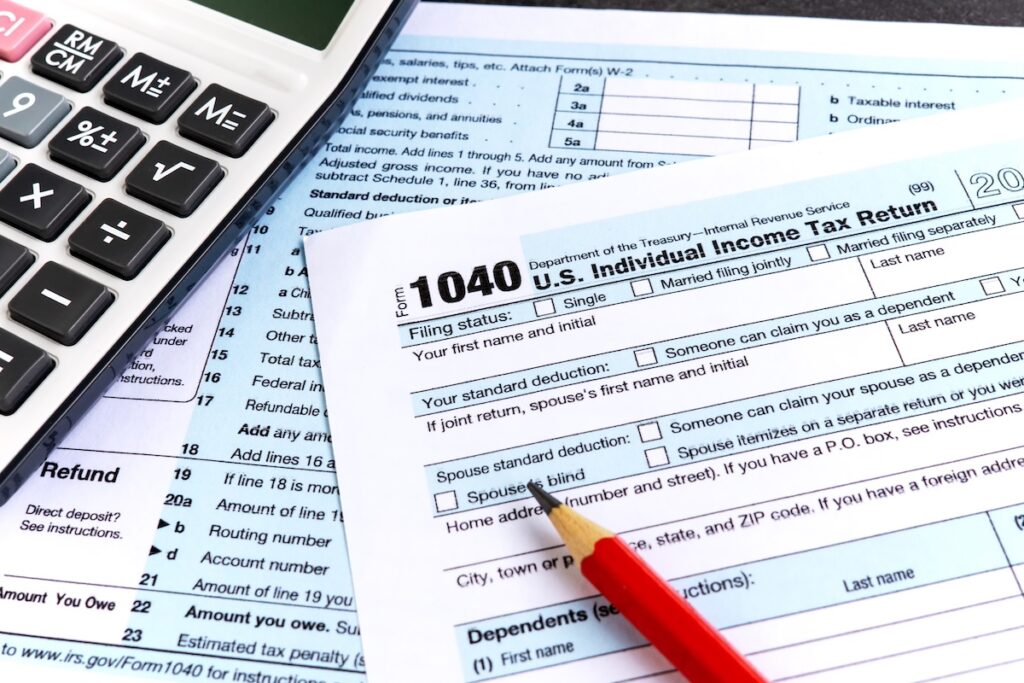Your Guide to US-Ecuador Expat Taxes
June 5, 2025 | Country Guides | 14 minute read
Expat Tax Blog. Tax Tips for US Americans abroad.
Updated
 All blogs are verified by Enrolled Agents and CPAs
All blogs are verified by Enrolled Agents and CPAs
Updated
Dreaming of fresh ceviche in Manta or a weekend stroll through Cuenca’s historic streets? If you’re an American living in Ecuador, enjoying the stunning nature of the Andes Mountains and Galapagos Islands, you still need to keep one eye on your US tax obligations. That’s where this US-Ecuador Expat Tax guide comes in. The US taxes its citizens no matter where they live, and Ecuador has its own set of tax rules you’ll need to understand. You might qualify for special tax breaks like the Foreign Earned Income Exclusion or a foreign tax credit—but only if you file correctly. Living abroad shouldn’t mean risking penalties back home. This guide will help you navigate the maze of US-Ecuador Expat Tax rules with confidence.
Who Needs to File US Taxes as an Expat?
Securing Your Visa for Ecuador
Moving to Ecuador: What to Expect
Optimize Your Taxes with US Tax Benefits: US-Ecuador Expat Tax Strategies
Self-Employment in Ecuador: US-Ecuador Expat Tax Tips for Freelancers
Investing in Ecuador as a US Expat
Choosing Ecuador for Your Retirement
US-Ecuador Expat Taxes Made Easy with MyExpatTaxes
Who Needs to File US Taxes as an Expat?
“Do I need to file US taxes as a citizen living abroad? Surely not!”
Unfortunately, you probably do. Since the US taxes based on citizenship, not residency, you’ll need to file a US return if you meet any of the income thresholds, no matter where you call home. You’re also required to report your foreign income, even if you don’t owe any US taxes.
In 2025, you’ll need to file your 2024 US taxes if:
| Filing Status | Income Threshold |
|---|---|
| Single | $14,600 |
| Married Filing Jointly | $29,200 |
| Married Filing Separately | $5 |
| Self-Employed | $400 |
| Qualifying Widow(er) | $29,200 |
| Head of Household | $21,900 |
US-Ecuador Tax Deadlines
Fortunately, the IRS allows some extra time for expats to get their US tax filing in order.
| Deadline | Date |
|---|---|
| Standard Filing Deadline | April 15th |
| Automatic Extension for Expats | June 16th |
| Deadline for Expats Filing an Extension (file by June 15th) | October 15th |
| FBAR Deadline for Expats | October 15th |
| Deadline for Expats if you Filed a Second Extension | December 15th |
The Ecuadorian tax year follows the calendar year, starting on January 1 and ending on December 31, just like in the US. If your only income comes from an Ecuadorian employer, you typically don’t need to file a local tax return. However, if you earn other types of income, such as freelance work or rental income, you’re required to file. The filing deadline falls in March, with the exact date depending on the ninth digit of your Ecuadorian tax ID number.
Tax Residency Ecuador
In Ecuador, tax filing requirements depend on both your residency status and the source of your income.
You’re considered a tax resident if you’ve spent more than 183 days in Ecuador during a 12-month period or have established permanent residency. Residents may be required to report their worldwide income, but only if their total earnings exceed the annual threshold, which is updated each tax year.
Non-residents, by contrast, are taxed only on income earned within Ecuador. Ecuador-sourced income includes any earnings tied to activities carried out inside Ecuador, no matter where the money is actually paid or received. This income is usually taxed at a flat rate of 25%, and the tax is withheld at the source before payment is made.
Ecuadorian Resident Taxes
Personal Income Tax
Ecuador has a progressive personal income tax rate, where, as of 2024, there is zero tax on the first $11,902 USD. Tax is applied in brackets starting at 5% at $11,902, with a maximum of 37% on income over $107,199 USD.
In many cases, salaried employees have their income tax withheld automatically. If that’s your only source of income, you likely won’t need to file a return. But if you receive other income—such as rental income, foreign earnings, freelance or business income, or capital gains—you may be required to file.
Social Security Contributions
If you work in Ecuador, you’ll need to pay into the national social security system. Most employees contribute 9.45% of their salary, though some benefits are excluded. Employers also pitch in 12.15% of your salary to the system. If you’re self-employed or working independently, you can still participate voluntarily, but at a higher rate of 17.6%.
US-Ecuador Expat Tax Agreements
At present, the US and Ecuador do not have a tax treaty. This means US expats in Ecuador may face double taxation—paying both Ecuadorian and US taxes on the same income—unless they use tools like the Foreign Tax Credit (FTC) or Foreign Earned Income Exclusion (FEIE).
There is also no US-Ecuador totalization agreement. This is significant for self-employed expats, who may need to pay into both countries’ social security systems, with no ability to transfer or combine benefits. Careful tax planning is essential to avoid overpaying and to stay compliant in both countries.
Securing Your Visa for Ecuador
You don’t need a visa for stays of less than 90 days in any 12-month period, which can be extended for up to 90 days.
For foreigners seeking long-term residence, Ecuador offers a variety of residency visa options. The process typically begins with obtaining a temporary residency visa, which is valid for two years and can be renewed. After 21 months of temporary residency, you can apply for permanent residency, provided you haven’t been outside of Ecuador for more than 90 days during that period.
Popular temporary residency visas in 2024 include the Jubilado Visa or Rentista Visa (for those aged over 18 years with a guaranteed fixed or passive income of around $1,400 per month), Investor Visa (requiring a minimum investment of approximately $46,000), and the Professional Visa (for individuals with a university degree).
Permanent residency allows indefinite stay in Ecuador, but comes with limitations on allowable absences from the country.
Moving to Ecuador: What to Expect
Ecuador offers incredible natural beauty, affordable living, and a relaxed pace of life—but like any move abroad, it comes with an adjustment curve.
Culture & Language
Ecuadorians are warm, community-oriented, and value personal relationships, so expect a friendly but formal first impression. Spanish is the official language, and while many locals are patient with learners, you’ll have a much easier time if you study the basics. In rural areas, English is rare, so learning key phrases goes a long way. Ecuadorian cities and towns can also be lively, with street noise, music, and neighborhood events being part of daily life. In busier areas, things might feel louder than you’re used to, so it helps to come with an open mind and a good set of earplugs.
Safety
Ecuador is generally safe for travelers and expats, but it’s important to stay aware of your surroundings. The US State Department advises exercising increased caution due to crime and civil unrest in certain areas. Petty crime, like pick-pocketing, is common, especially in crowded places. Staying informed and taking standard precautions can help ensure a safe experience.
Healthcare
Ecuador offers both public and private healthcare services. While major cities like Quito and Guayaquil have facilities that meet many travelers’ needs at much lower prices than the US, the quality and availability of care can vary, especially in rural areas. It’s advisable to have comprehensive private medical insurance and to familiarize yourself with local medical resources before travel.
Cost of Living
Ecuador offers a significantly lower cost of living than most parts of the US. You can rent a modern apartment in cities like Cuenca or Loja for $400–$700 a month, and local markets make fresh produce incredibly affordable. Dining out, public transport, and basic utilities all cost a fraction of US prices, while imported goods and electronics can be relatively pricey. In 2025, the average cost for a single person is $812 per month, and $2,084 for a family of four.
Optimize Your Taxes with US Tax Benefits: US-Ecuador Expat Tax Strategies
Foreign Earned Income Exclusion (FEIE)
As a US expat living in Ecuador, you may be able to exclude up to $126,500 of your foreign-earned income from US taxes using the Foreign Earned Income Exclusion. To qualify, you must pass either the Physical Presence Test (you’re physically in a foreign country for at least 330 full days in any 12-month period) or the Bona Fide Residence Test (you reside in a foreign country for an uninterrupted period that includes an entire tax year). As the name implies, the FEIE can only be applied to earned income, such as wages, self-employment income, and active partnership income.
Foreign Tax Credit (FTC)
The Foreign Tax Credit gives you a dollar-for-dollar credit on income taxes paid to a foreign country. You can apply this credit to passive income, such as rental income, dividends and interest, as well as earned income.
While both the US and Ecuador cap at Personal Income Tax at 37%, Ecuador reaches that rate at much lower income levels, meaning middle- and high-income earners may pay a higher tax rate in Ecuador than they would in the US. As a result, you may have excess US Foreign Tax Credit. While it isn’t refundable, this credit can often be carried back 1 year or forward up to 10 years.
Child Tax Credit (CTC) and Additional Child Tax Credit (ACTC)
If you have a qualifying child under age 17 with a US Social Security number, you may be eligible for a Child Tax Credit of up to $2,000 per child. Up to $1,700 of this amount may be refundable under the Additional Child Tax Credit, depending on your income. You can’t claim the ACTC if you exclude your income using the FEIE. Planning carefully here can help you maximize your refund.
FBAR & FATCA Reporting
US expats in Ecuador must comply with FBAR and FATCA, two key reporting rules designed to prevent offshore tax evasion by requiring disclosure of foreign bank accounts and assets.
If you have more than $10,000 combined among your foreign accounts at any time during the year, you’ll need to file the FBAR.
Under FATCA, you are also required to report all foreign accounts and assets if your maximum combined balance exceeds $200,000.
Good to Know: MyExpatTaxes supports FBAR and FATCA filing as standard.
Self-Employment in Ecuador: US-Ecuador Expat Tax Tips for Freelancers
Self-employment is a viable option for US expats in Ecuador, but it comes with distinct tax and compliance obligations in both countries. In Ecuador, you’ll need to register with the tax authority (SRI) and obtain a RUC (Registro Único de Contribuyentes) number. As in the US, you’ll have to issue invoices, file monthly and annual tax returns, and pay income tax on net earnings. Social security contributions must also be paid through the IESS system, typically at a rate of 17.6% of declared income for voluntary contributors.
On the US side, self-employed expats must report their global income, even if it’s earned abroad. You’ll owe 15.3% self-employment tax (covering Social Security and Medicare) on net earnings over $400. Unfortunately, there’s no totalization agreement between the US and Ecuador, so expats often pay into both social security systems with no credit or benefit transfer. The upside is that you’ll be able to draw from both pots upon retirement.
Investing in Ecuador as a US Expat
Property
Buying property in Ecuador is popular among expats due to the country’s low cost of living and property costs, stable use of the US dollar, and appealing coastal and mountain real estate markets. Expats can purchase various types of property—homes, condos, land, or farmland—without citizenship or residency, as there are no ownership restrictions for foreigners. Buyers should budget for around 2-4% in closing costs, including notary, registration, and legal fees, plus an annual municipal property tax of 0.025% to 0.5% of the property’s assessed value. A 10% capital gains tax (Plusvalía) applies when selling property, based on the increase in municipal-assessed value. Property ownership can also support an Investor Visa, requiring a real estate investment of at least $45,000 in 2024.
Provided you meet the ownership and use requirements, the US allows up to $250,000 ($500,000 for joint filers) of capital gains to be excluded from taxable income. This exclusion applies regardless of the country where the property is located, including Ecuador.
Read more: 8 Things to consider when buying property abroad
US-Based Individual Savings Account (IRA)
Investing in a US-based Individual Retirement Account (IRA) is a common strategy for US expats in Ecuador who want to build long-term retirement savings. As a US citizen, you can contribute to a Traditional or Roth IRA while living abroad, but you must meet certain eligibility requirements. The annual contribution limit is $7,000 (or $8,000 if you’re age 50 or older).
To qualify, you need to have earned income that’s taxable in the US, reported on your tax return. If you exclude all your income using the Foreign Earned Income Exclusion (FEIE), you won’t be able to contribute to an IRA. Instead, some expats choose to claim the Foreign Tax Credit (FTC) instead of the FEIE, allowing their income to remain taxable in the US and making IRA contributions possible. In addition, Roth IRAs contributions have modified adjusted gross income limits, meaning if your income is too high you cannot contribute.
Tax Tip: Ensure next year’s US tax return is optimized with MyExpatPlanning. Discuss any investing, property sales, business, and retirement questions with a Tax Professional in a 30-minute one-to-one call.
Choosing Ecuador for Your Retirement
With retirement costs steadily increasing in the US, many Americans are exploring more affordable options abroad. Ecuador has emerged as a top destination, offering a low cost of living, favorable climate, and attractive benefits for retirees.
One of the main draws is affordability. A couple can live comfortably in Ecuador for less than $23,000 per year, enjoying amenities like dining out, healthcare, and even domestic help. Additionally, retirees over 65 receive discounts of up to 50% on public transportation, utilities, and entertainment.
To retire in Ecuador, U.S. citizens typically apply for the Jubilado visa. This requires proof of a stable income, such as Social Security, of at least 3 times the national minimum wage (around $1,400 per month in 2025) and a national or foreign health insurance policy. The visa is initially valid for two years and can lead to permanent residency.
Ecuador’s diverse climate caters to various preferences. Coastal areas like Salinas offer warm, tropical weather, while highland cities like Cuenca provide a mild, spring-like climate year-round. With its combination of affordability, natural beauty, and welcoming communities, Ecuador presents a compelling option for retirees seeking a high quality of life abroad.
US-Ecuador Expat Taxes Made Easy with MyExpatTaxes
Our US-Ecuador Expat Tax Guide may have given you a lot to think about, and if you’re feeling at all overwhelmed, don’t worry. Filing your US taxes from Ecuador can be fast, affordable and easy! Our award-winning expat tax software supports all the forms you need to be IRS compliant, and will ensure you take maximum advantage of all available tax deductions.
You can test our software before you commit—no upfront payment required. Plus, our friendly customer service team is here to help if you have questions about FEIE, FTC, FATCA, or anything else related to US-Ecuador expat taxes.
See Why US Expats From Around the World Love Us!
Easily file regardless of how complex your US expat tax situation is.
Been here before? Sign in!


Written by Nathalie Goldstein, EA
Nathalie Goldstein, EA is a leading expert on US taxes for Americans living abroad and CEO and Co-Founder of MyExpatTaxes. She contributes to Forbes and has been featured in Forbes, CNBC and Yahoo Finance discussing US expat tax.
June 5, 2025 | Country Guides | 14 minute read






